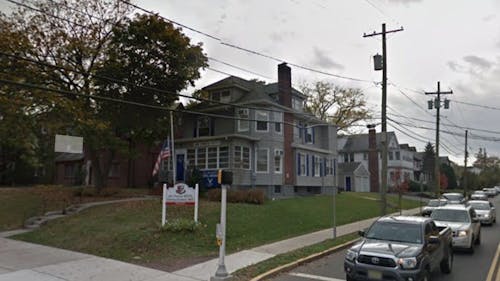Two students from Rutgers ROTC will train as Air Force pilots

Senior Air Force Reserve Officer Training Corps (AFROTC) cadets, Michael Quigley, a School of Arts and Sciences junior, and Alexander Hsia, a Princeton University student, have been selected to become pilots after graduation, when they will go to an Air Force base and receive their in-depth flight physicals.
Capt. Kayla Stevens, assistant professor in the Department of Aerospace Studies, said that after commission there is a two-year pilot training process.
Hsia and Quigley will then receive their planes, base assignment and undergo survival training.
The two cadets were selected based on their outstanding skills, Hsia said. GPA, physical fitness score, flight aptitude, commander’s ranks and their summer training camp are taken into account when being considered for the position.
These results are then sent to the Air Force headquarters, Hsia said.
“The Physical Fitness Assessment (PFA) is a test that all cadets have to take and pass once a semester,” Hsia said. He said that the test measures the maximum number of push-ups a cadet can perform in one minute, the maximum number of sit-ups in one minute and a timed 1.5-mile run.
Hsia also offered commentary about the pilot application and the summer training camp.
“The Pilot Candidate Selection Method (PCSM) score is comprised of a number of real-world flight hours, a written aviation knowledge test and the Test of Basic Aviation Skills (TBAS),” he said. The TBAS is a series of tests that are designed to measure one’s spacial and motor coordination as well as multitasking ability.
The summer training camp, also called Field Training, is a multi-week session held at Maxwell Air Force Base in Alabama.
“Upon completion of their freshmen and sophomore years, competitive cadets can be chosen to attend this camp as the next step in their AFROTC career,” Hsia said. To continue in the AFROTC program, one must be accepted into the camp and pass its requirements.
Hsia said that Field Training Officers (FTOs) and seniors selected as Cadet Training Assistants (CTAs) evaluate cadets based on military leadership through numerous challenges and tasks.
“It’s all aspects that you can control. You have to be an all-around cadet," Quigley said.
Hsia said that his favorite aspect about being part of AFROTC is the dual life of being a student and a cadet, as well as knowing he is going to eventually serve in the military.
Quigley said he appreciates the opportunities that he may not get as a regular student.
“The leadership training is unmatched unless you’re at an academy. You stand out to professionals," he said.
As much as there are benefits of AFROTC, there are some challenges that need to be faced to succeed.
Hsia said it can be difficult because the program revolves around Rutgers' schedule and as a Princeton student, there are times that classes and spring breaks conflict, but it is a matter of priority to him.
Although cadet responsibilities include physical training twice a week, 3-hour leadership training blocks every Friday, sacrificing some social events and getting up early, Quigley said he has adapted to it.
“One day we’re going to graduate and getting up early is going to be part of the lifestyle,” he said.
Both Hsia and Quigley agree that they are held to a higher standard than other college students would be because they are in ROTC.
If an AFROTC cadet decides to cheat on a test and subsequently gets caught, there are two lines of authority that they have to answer to, the first being Rutgers and the Air Force second, Quigley said. Sometimes Rutgers can forgive easily, but the Air Force may not.
“It’s a little bit of give and take,” Hsia said. While being in AFROTC can limit options that everyday students may have, the end goal is essential, he said.
While many people at Rutgers may know what ROTC is, they may not know how much hard work and dedication goes into it. Hsia said that cadets have to earn their place every step of the way and work hard.
“In ROTC, you are a cadet at all times. Being a cadet becomes a part of your everyday life,” Quigley said.
He said that his and Hsia’s AFROTC class started out with approximately 40 people and that now it is down to approximately eight.
“Some people come in and out of the program, and that’s okay. People have to learn if it’s for them,” Quigley said.



